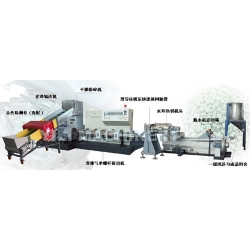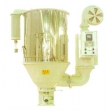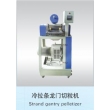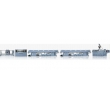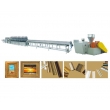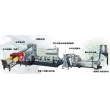With the continuous development of manufacturing industry presses, presses rising foreign sales, exports from the original countries in Southeast Asia, the Middle East to Europe, countries and regions like the United States. In order to better deal with technical barriers to trade, to expand our international market share of presses, presses companies have carried out a number of CE, UL and other safety certification. However, because of the security certification do not understand, leading to certification and certification in the selection process there are many problems, and even fooled. As the only plastic machinery, a national testing agencies, and shoulder the heavy responsibility to guide development of the industry, the obligation is necessary to use the center of professional and technical capacity for the majority of press manufacturers introduce safety certification of knowledge, thus contributing to machine industry better to overcome the technical barriers to trade, increase international competitiveness. Given the current most enterprises are in dire need of the European safety certification CE safety certification, the following will serve as highlights.
CE is a French Conformitē Europēeme (European Conformity Assessment) of the abbreviation is unique to the mandatory European safety mark. Assess whether the EU market products based on circulation, is whether the product has been CE marked. Once the CE marking product, it indicates that the product complies with EU basic public safety, health, environmental and consumer protection requirements. The existing 27 EU member states: Belgium, Cyprus, Czech Republic, Denmark, Germany, Greece, Spain, Estonia, France, Hungary, Ireland, Italy, Latvia, Lithuania, Luxembourg, Malta, Netherlands, Austria, Poland, Portugal, Romania, Slovakia, Slovenia, Finland, Sweden and the United Kingdom, and eager to join the EU in Turkey. Up to now, the EU issued a total of 22 instructions (instructions can be defined as European law, Member States of technical regulations above), the products involved are: electronic electrical products, PVC Machinery and equipment, simple pressure vessels, toys, building products, personal protective equipment, medical devices, gas appliances, pressure equipment. Plastics machinery by artificial loading and unloading of the plastic injection or compression molding machine because of its high degree of risk to be classified as dangerous machinery EU Machinery Directive, must be Notified Body (EU authority) inspection of products before the implementation of EC put the CE mark and sold in the EU use.
(A) self-declaration: is the company through their own test equipment, according to the relevant EU directives and standards for their products for testing and improving, and companies issued their own name to the certificate, while preparing the necessary technical documents and save up to the relevant European organizations see the future.
Summary: The self-declaration form to obtain CE certificate, certificate of easy, but the future enterprise is to assume great risk. For domestic production enterprises, to obtain a certificate of self-proclaimed effectiveness in the market is very low. Generally used only for low-risk products. Third-party certification (certification agency and the European Union authorized) certification of disadvantage: a certificate in the EU market, including customs do not recognize this certificate, that the validity of this certificate is also extremely low, in the future if the product quality problems resulting consequences, enterprises assume more responsibility, less responsibility without authority responsible.
(C) third-party certification (certification body authorized by the EU): that is authorized by the EU institutions (such as SGS, EVPU certification body), through them to test concurrency certificate, this model is the highest mode of CE certification, the certificate validity high, the EU regulations in the first chapter on the mechanical part of the mechanical scope of the market and the free flow of Article 4 wrote that “all EU member states should not prohibit, restrict or impede third-party organizations authorized by the European Commission reviewed the product in its territory of the market and put into use. “According to EU regulations the contents of the above, third parties authorized by the European Union issued a certificate side effect is very high. And if after the certified products in the course of the quality problem, the EU authorized third party to assume important responsibilities.




